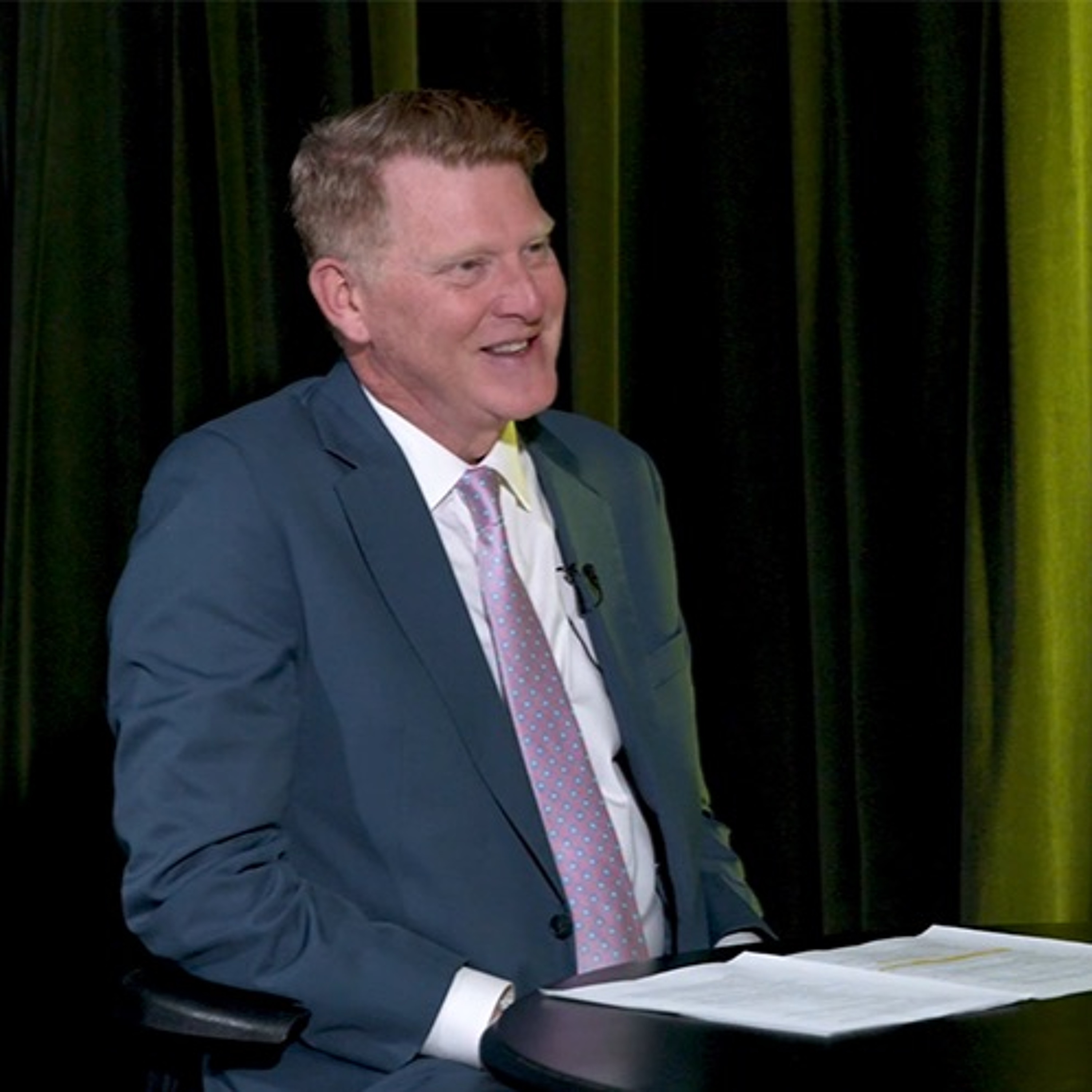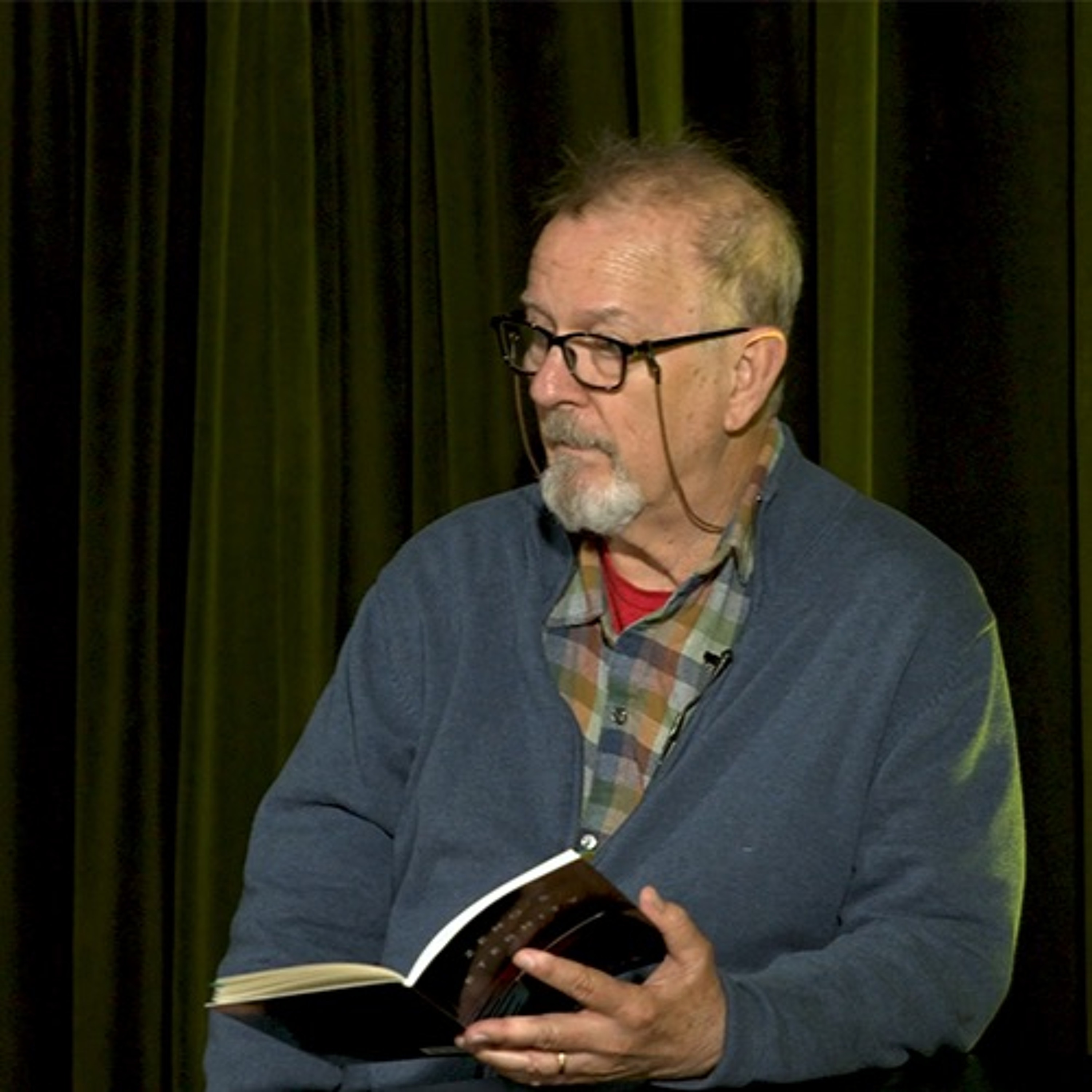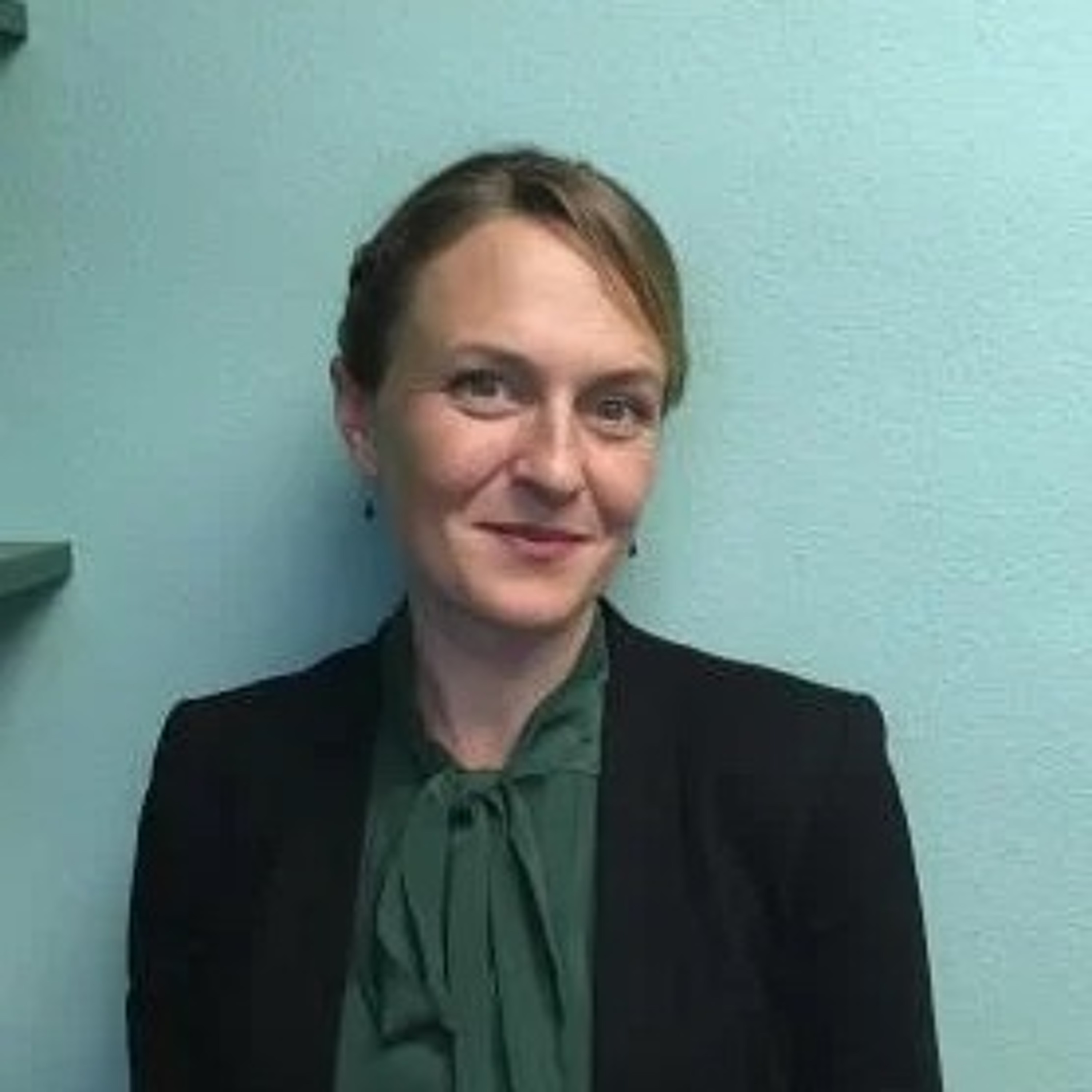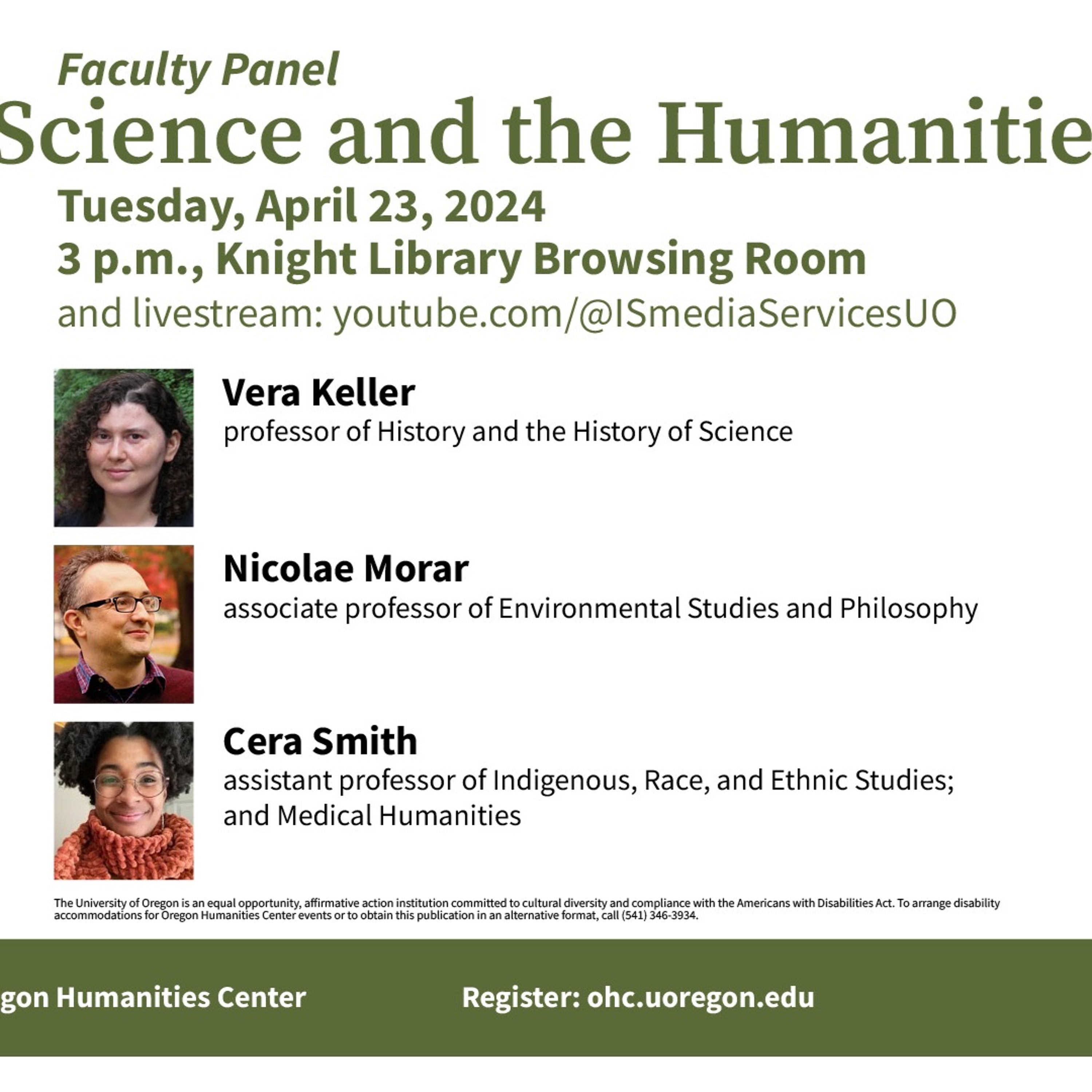Discover UO Today
UO Today

UO Today
Author: Oregon Humanities Center
Subscribed: 1Played: 29Subscribe
Share
© All rights reserved
Description
The Oregon Humanities Center is the sole interdisciplinary umbrella organization for the humanities at the University of Oregon. We encourage scholars to articulate their ideas in language that is accessible both to scholars in other fields and to the general public. The OHC sponsors a wide array of free public programs designed to provide a forum for discussion of and reflection on important issues.
270 Episodes
Reverse
Aimée Morrison is an associate professor of English Language and Literature at the University of Waterloo in Ontario, Canada. She talks about her work to understand how people decide how to represent themselves online, what motivates those decisions, and what effects they have.
She also discusses her experience as a professional woman who has been diagnosed later in life with ADHD and her work to bridge scholarly and popular knowledge about neurodiversity.
On May 16th, 2024, Morrison gave a talk titled “Touch Grass” as the annual lecturer for the UO’s New Media and Culture Certificate program.
Moeko Yamazaki, PhD candidate, History, and 2023–24 OHC Dissertation Fellow
“My dissertation critically examines the logistics industry by looking at the history of FedEx. I examine how economic deregulation, the expansion of precarious employment, and the weakening of labor unions made the growth of logistics possible. I demonstrate that the logistics industry enabled businesses and consumers to enjoy the benefits of the technological developments of speed and efficiency while preserving the longstanding power dynamics of capitalist industrial relations in which the most vulnerable workers pay the greatest cost.”
Joe Buck is the Vice President for Advancement at the University of Oregon. He talks about the fundraising priorities for the university and the value of philanthropy for higher education.
Poet and critic Mark Jarman is author of twelve poetry collections and four books of essays. His most recent book of poetry is Zeno’s Eternity published in 2023. He discusses his work and reads from his recent collection. Jarman gave a reading at the University of Oregon on May 2nd, 2024, as a guest of the Creative Writing Program.
Katherine Kelp-Stebbins, Comics and Cartoon Studies, and 2023–24 OHC Faculty Research Fellow.
“My project examines graphic reportage as a tool for documenting international human rights struggles. The book considers how reporter-artists use comics to tactically and ethically intervene in discourses of injustice and representation. Via their subjective verbal-visual mediality, comics challenge the differential optics by which some lives are made more or less visible and valuable. Questioning how journalistic objectivity has overdetermined the documentation of humanitarian crises, the book uses comics to rethink the evidentiary claims of the image.”
Three UO humanities faculty whose scholarship engages the natural sciences in various ways talk about their work across the divide between the science and the humanities and why that work matters: why it is important for humanists to study the sciences, to work with scientists, and to interrogate the two cultures’ divide, especially in this moment.
Vera Keller, Professor and Department Head of History, is a historian of early modern Europe particularly interested in the emergence of experimental science and the entanglements of research with capitalism, colonialism, and political economy and more broadly in the history of knowledge, of research, and of the research disciplines.
Nicolae Morar is an Associate Professor of Environmental Studies and Philosophy, and associate member of the UO Institute for Ecology and Evolution. Professor Morar’s research interests lie at the intersection of biology, ecology, and bioethics. His work considers how various conceptual analyses in the philosophy of biology and ecology influence and transform debates in bioethics, and in ethics broadly construed.
Cera Smith is an Assistant Professor of Indigenous, Race, and Ethnic Studies and Black Studies. Professor Smith’s research focuses on twentieth and twenty-first century U.S. Black literature, Black Studies, and the health humanities. Their current book project analyzes how and why U.S. Black artists use biology to depict racialized life.
Arigon Starr is an enrolled member of the Kickapoo Tribe of Oklahoma. She is an award-winning musician, composer, actor, playwright, and artist. She created the comic Super Indian. Arigon Starr gave the final talk in this year’s Indigenous Comics Speaker series on April 22nd, 2024, hosted by the Native American and Indigenous Studies program and the Comics and Cartoon Studies program at the University of Oregon.
Chandler James is an assistant professor of Political Science at the University of Oregon, who specializes in American Politics, with a focus on the U.S. presidency and public opinion. In addition, he is a committed environmentalist and outdoorsman. He joined the UO faculty in fall 2023.
Nina Amstutz is an Associate Professor of the History of Art and Architecture at the University of Oregon. Professor Amstutz along with Portland artist and activist Cleo Davis curated the exhibition “Policing Justice” which is on view at the Portland Institute for Contemporary Art through May 19, 2024.
Stephen J. Shoemaker, Religious Studies, and 2023–24 OHC Faculty Research Fellow.
“My project will provide something that has long been needed: a book-length study of the historical figure of Muhammad, the formation of the Qur’an, and the beginnings of Islam that is both grounded in the methods of historical criticism and aimed at the general reader. Unfortunately, this important perspective has been largely absent from public discourse on Islam, and it is this significant gap that my book aims to fill.”
Maxwell Foxman is an assistant professor of Media Studies and Game Studies in the School of Journalism and Communication at the University of Oregon.
Professor Foxman’s primary research focus is on how games and play interact with non-game contexts and media professions. This research engages several overlapping realms such as immersive media, game journalism, esports, and game production.
Foxman is the co-author of Mainstreaming and Game Journalism with David Nieborg which was published in 2023 by the MIT Press.
Laura Pulido professor of Indigenous, Race, and Ethnic Studies and Geography at the University of Oregon where she
studies race, environmental justice, and cultural memory. Her research explores the relationship between race, place, and social and environmental processes. She has devoted much of her career to studying environmental racism, especially how racism is conceptualized and operationalized in the scholarship and practice of environmental justice. Most recently, she has been studying how white supremacy and white nationalism impact climate denial and refusal.
Three UO humanities scholars with extensive expertise in the philosophy of AI, computation, digital humanities, information politics, and data ethics engage, through perspectives rooted in the humanities, the challenges that AI and other data-driven technologies increasingly present today.
Ramón Alvarado, assistant professor of Philosophy and Data Science Initiative, the Data Ethics coordinator, and author of Simulating Science: Computer Simulations as Scientific Instruments (2023)
Mattie Burkert, associate professor of English, director of the Minor in Digital Humanities, the interim director of the New Media and Culture Certificate, and the Principal Investigator and Project Director for the London Stage Database
Colin Koopman, professor of Philosophy, author of How We Became Our Data: A Genealogy of the Informational Person (2019), and the project lead of the Our Data, Our Selves web project.
Miguel Gualdrón Ramírez is an assistant professor of Philosophy at the University of Oregon.
His research interests include Critical Philosophy of Race, Latin American and Caribbean Philosophy, Aesthetics and Philosophy of Art, 18th and 19th century German Philosophy, and 20th century Continental Philosophy.
Gualdrón Ramírez studied philosophy as an undergraduate and MA student at the Universidad Nacional de Colombia, and earned a PhD in Philosophy from DePaul University, Chicago.
Before joining UO, he was Assistant Professor in the Philosophy and Religion Department at the University of North Texas (2021-2023) and Visiting Professor of Philosophy at Oxford College of Emory (2018-2020).
Artist Omar Khouri was born in London and spent his childhood in Lebanon.
In 2002, he graduated from Massachusetts College of Art and Design in Boston with a BFA in illustration. After spending a year in Los Angeles working in cinema and television, he returned to Beirut.
In 2006, Khouri cofounded Samandal Comics Magazine, the first experimental comics periodical in the Arab world. He is currently Samandal’s Editor-in-Chief and one of its many international contributing artists.
In 2010, Khouri's sociopolitical satire Utopia won Best Arabic Comic book at the Algerian International Comic Book Festival. His work spans many art forms including painting, comics, animation, theatre, film, and music.
Khouri is currently artist-in-residence for the UO’s Comics and Cartoon Studies program. He is producing a U.N. report on the right to food in comics form as a collaboration with Law professor Michael Fakhri and English and Comics Studies professor Kate Kelp-Stebbins. This work is in conjunction with professor Fakhri’s appointment as Special Rapporteur on the Right to Food for the United Nations.
Diego Mauricio Cortés is an Assistant Professor of Global Media at the University of Oregon’s School of Journalism and Communication.
Professor Cortés’s research intersects alternative and community media, Latin American Indigenous studies, religious studies, and popular culture. Through this multidisciplinary practice, he examines formations of contemporary Indigeneities in the Andes, transnational evangelicalism, American whiteness, and media representations of the war on drugs.
Professor Cortés is currently working on a book manuscript that explores the repercussions of the rapid expansion of evangelicalism (non-denominational American Christianity and Pentecostalism) among Andean Indigenous communities in Colombia, Ecuador, and Bolivia.
Prior to joining the UO faculty in fall 2023, Professor Cortés was an assistant professor of Communication Studies at the University of Pittsburgh at Bradford.
Sergio Loza, Romance Languages, Director of the Spanish Heritage Language Program, and 2023–24 OHC Faculty Research Fellow.
My project explores the collective experiences of Latinx students who served as student ambassadors for the Spanish heritage Language program at the University of Oregon. These student ambassadors collaborate in various administrative tasks as well as advocate for multilingualism and Latinx representation on campus by organizing events on campus. The design, implementation, and outcomes of this program highlight the applied ways in which social justice educational frameworks can inform innovative programmatic initiatives that enrich the educational experiences of Latinx students.
Devin Grammon, Romance Languages and 2023–24 OHC Faculty Research Fellow.
The idea that bilingual signage helps to create welcoming and inclusive public spaces for U.S. Spanish speakers is complicated by the inequitable treatment of English and Spanish on many signs in terms of translation quality, text size, fonts, and other factors. My project examines bilingual public signs in downtown Eugene in order to explore how representations of Spanish can reinforce racializing stereotypes about U.S. Latinos and construct a public sphere that is hostile to members of this ethnolinguistic group.
Glynne Walley, East Asian Languages and Literatures and 2023–24 OHC Ernest G. Moll Research Fellow in Literary Studies.
The 19th-century adventure novel Eight Dogs by Kyokutei Bakin is one of the most influential books in Japanese history and a key example of the spread of literary ideas and techniques across the the Sinosphere. It’s also one of the longest novels in world history. My project involves a complete annotated translation in multiple volumes, each with an introduction examining a different aspect of the work; the next introduction will look at the publishers who undertook this massive project.
Cole Pauls is a Tahltan comics artist, illustrator, and printmaker from Haines Junction, Yukon Territory. He earned a BFA in Illustration from Emily Carr University of Art and Design. Pauls has created three graphic novels: Dakwäkãda Warriors (2019), Pizza Punks (2021) and Kwändür (2022).
Cole Pauls gave the second talk in this year’s Indigenous Comics Speaker series on February 21st, 2024 hosted by the Native American and Indigenous Studies program and the Comics and Cartoon Studies program at the University of Oregon.
























